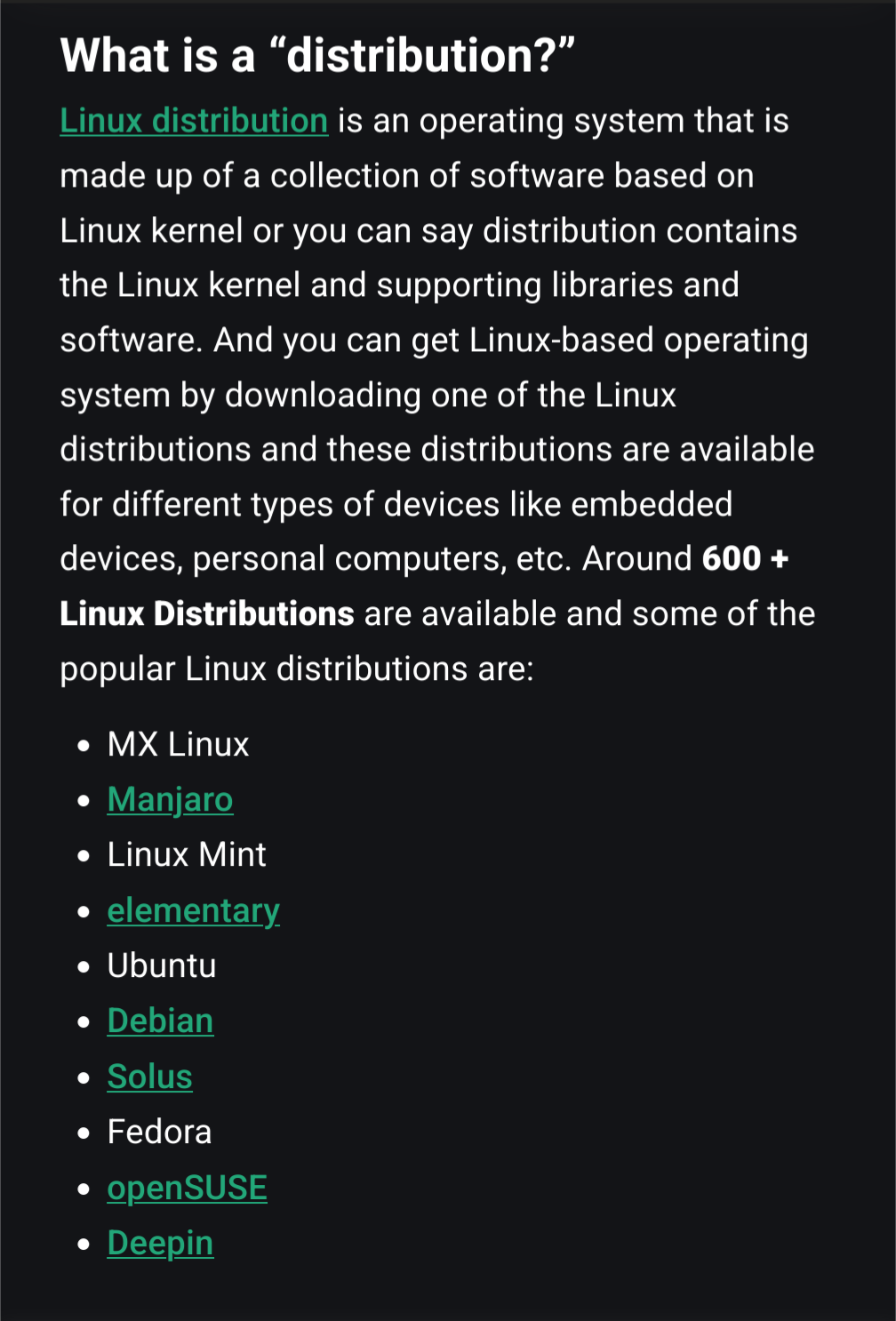this post was submitted on 27 Oct 2024
79 points (98.8% liked)
Linux
50208 readers
1004 users here now
From Wikipedia, the free encyclopedia
Linux is a family of open source Unix-like operating systems based on the Linux kernel, an operating system kernel first released on September 17, 1991 by Linus Torvalds. Linux is typically packaged in a Linux distribution (or distro for short).
Distributions include the Linux kernel and supporting system software and libraries, many of which are provided by the GNU Project. Many Linux distributions use the word "Linux" in their name, but the Free Software Foundation uses the name GNU/Linux to emphasize the importance of GNU software, causing some controversy.
Rules
- Posts must be relevant to operating systems running the Linux kernel. GNU/Linux or otherwise.
- No misinformation
- No NSFW content
- No hate speech, bigotry, etc
Related Communities
Community icon by Alpár-Etele Méder, licensed under CC BY 3.0
founded 5 years ago
MODERATORS
you are viewing a single comment's thread
view the rest of the comments
view the rest of the comments
This article is conflating terms that I need help distinguishing between. The other commenter mentioned that Ubuntu is a type of Debian but this article lists Debian and Ubuntu as distributions.
Debian is a base distro, in your example. Other distros can be based upon other ones. Think of it like another layer; the distro maintainers look at Debian and say, "I like these aspects, but I think we can build upon that and make something even better!"
This means those distros with a "base" are
downstreamof theupstreamdistro base, and any time the upstream distro gets updates, the downstream ones will benefit.I'd say that the article is correct in calling them separate distributions.They are certainly related (both part of the Debian family), but I think most people would consider them to be separate distributions. Software built for Ubuntu 24.04 may work on Debian 12, but it might also not. For a beginner, I think it's most useful to consider them to be separate things.
See the comment here: https://sh.itjust.works/comment/14684312